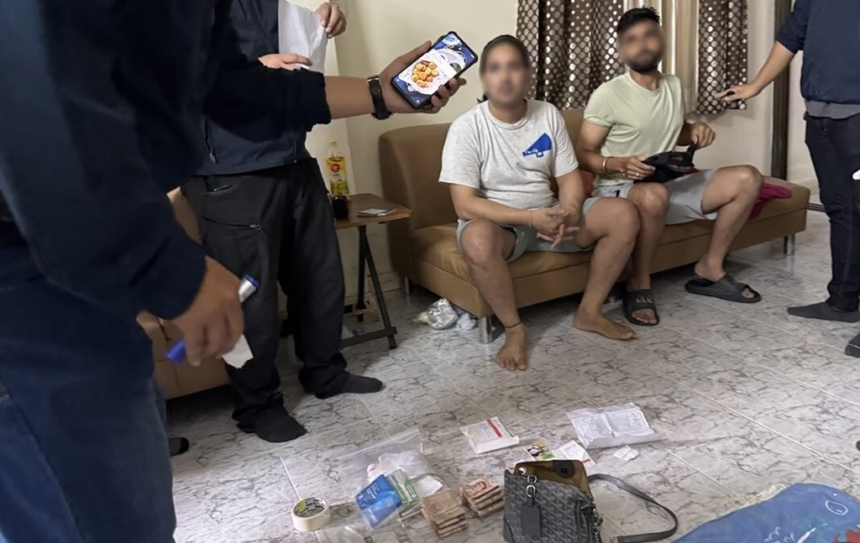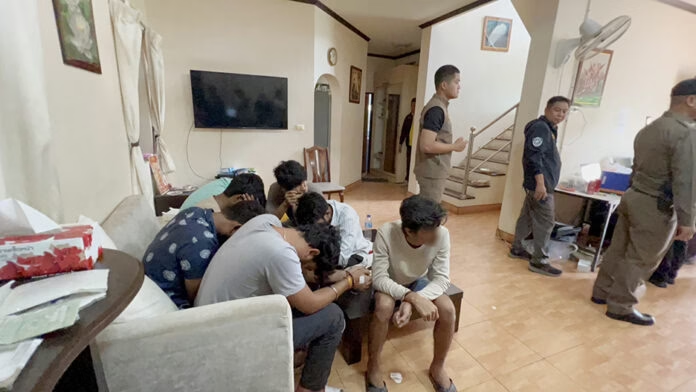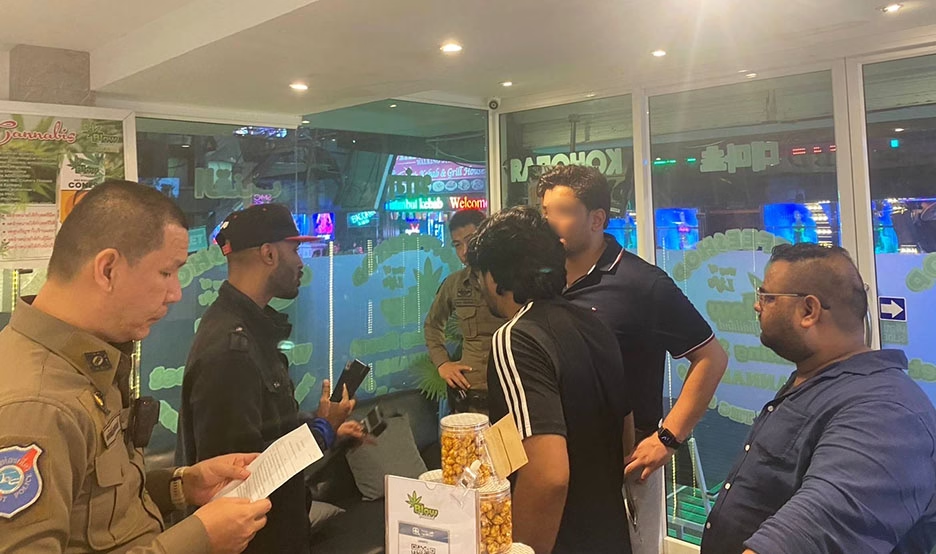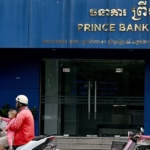BANGKOK – Cyber police have detained an Indian man and a Thai woman accused of running a transnational gold fraud that convinced a US victim to send 59,350 dollars to Bangkok, where the funds were then used to buy gold in Thailand.
Pol. Maj. Gen. Chatchapandakarn Khlaikhlueang, deputy commissioner of the Cyber Crime Investigation Bureau (CCIB), revealed the arrests at a press briefing on 14 October. He said the victim, who lives in Denver, received an email that looked like a PayPal notice.
It claimed a charge of 451.99 dollars for a Bitcoin purchase and listed a US phone number. After calling, the victim was persuaded to move 54,350 dollars from his bank to a corporate account in Thailand, about 2 million baht.
The scammers then pressed for a further 5,000 dollars, warning of trouble if he refused. He sent the extra money, taking the total to 59,350 dollars. Doubts grew when a Texas number was answered by a caller with an East Asian accent. US officers tracked the money to Thailand and worked with Thai authorities.
Police Seized Documents and Cash
Pol. Col. Torsak Panklinphut, commander of Sub-division 4, CCIB 2, said investigators followed the trail to a Thai limited partnership named Farm LA. It was registered on Soi Rat Burana 10 with a capital of 2 million baht for real estate brokerage. Ms Wandee was listed as the director.
The firm had been registered for only a month and had not traded. Officers traced the funds as they moved to an Indian suspect’s account, then saw cash withdrawals used to buy gold bars at a shop in Bangkok’s Wangburapha area.
Police arrested Mr Gurdeep, 29, an Indian national, at a residence in Taling Chan, Bangkok, and Ms Wandee, 41, at her home in Roi Et Province. Both face charges that include transnational organized crime, fraud, entering false data into a computer system, allowing bank accounts to be used for technology crimes, and money laundering.
Officers seized paperwork, money transfer slips, and 200,000 baht in cash. Ms Wandee told police she had been paid 10,000 baht to open the company account and pass incoming funds to the other suspect to buy gold.
Mr Gurdeep admitted involvement and said gold prices are higher in India. He told the shops the money came from Indian buyers wanting Thai gold, and asked for bars to be changed into ornaments to make transport to India easier.
Pol. Maj. Gen. Chatchapandakarn said the network likely had around 20 victims from Africa and America, with about 20 million baht, or 610,600 dollars, flowing through the scheme.
Authorities plan to work with partner agencies to help victims file complaints. Investigators will also look into the rise of company shell accounts, which scammers now favour over personal accounts.
Spike in Crime By Indian Nationals
As of 15 October, arrests involving Indian citizens in Thailand are up 35 percent compared with 2024, based on preliminary Royal Thai Police data. The spike, linked to post-pandemic travel and economic gaps, has brought attention to offences from small-time scams to organized networks. It has also put pressure on a relationship often framed by cultural ties and trade.
High-profile busts have led the news. In January, Bangkok police broke up a call-centre scam in Pattaya, arresting 28 Indian nationals accused of duping elderly Thais and Europeans with fake investment offers.
The operation, called Operation Cobra, turned up counterfeit SIM cards and scripts that copied real financial brands. Reported losses topped 500 million baht. RTP Commissioner General Torsak Sukwimol partly blamed relaxed visa checks during the extended Visa-Free for Indians policy, which saw more than 1.5 million Indian arrivals in the first half of 2025.
Indian Drug Gangs
Drug crime has become another sore point. In April, a Thai-Indian team seized 200 kilograms of methamphetamine in Phuket, concealed in cargo from Mumbai. Eight Indian couriers were named, tied to a route that uses Andaman Sea ports as transit points for wider Southeast Asian markets.
Economic pressures sit behind many cases. A large youth population and joblessness around 8 percent in India have pushed some to seek quick money overseas, amplified by social media myths about easy gains. Thailand’s draw, from beaches to nightlife and light-touch oversight, adds to the pull. Not every case casts Indians as offenders, though. Scams against Indian tourists have gone up, with about 200 pickpocketing reports in Phuket alone.
Authorities moved to tighten controls. In June, Thailand introduced tougher e-visa screening for Indian applicants, using AI-driven background checks. Talks in New Delhi produced an intelligence-sharing pact, and India extradited 10 fugitives by September. Community groups, such as the Indian Diaspora Forum in Bangkok, urge balanced policies that focus on rehabilitation as well as deportation, to reduce repeat offences.
The trend highlights a hard truth about global travel and trade. Indian visitors bring around 2 billion dollars a year to Thailand, yet unchecked crime wears away trust. As 2025 nears its end, joint policing, public awareness, and smarter visas offer a path to steadier ties. Open borders invite exchange, but they also require clear rules and shared responsibility.

















